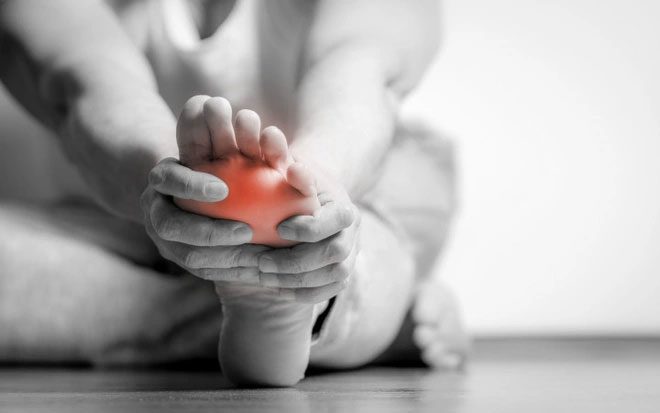Sometimes we sit cross-legged because it’s our favorite position. However, after a while, you may feel a tingling sensation in your legs, as if they are being pricked by needles. Why does this happen?
For one or two minutes of experiencing leg numbness, you might feel uncomfortable and strange, but you can soon stand up and walk normally.
Explaining this phenomenon, scientists suggest that when your foot feels like it’s “asleep,” something is off in the communication process between the brain and the muscles in that area.
Whenever you decide to move your body, whether standing up, walking, or playing sports, the brain sends signals to the muscles to ensure they move correctly.

Some people mistakenly believe that poor circulation causes this sensation.
When the brain cannot communicate with a muscle or group of muscles, some strange things can happen – including that part of your body experiencing that odd sensation.
It often starts with a feeling of numbness or tingling. This sensation, which people often refer to as “pins and needles,” is scientifically known as paresthesia.
Some people mistakenly believe that poor circulation causes this sensation. They imagine that this feeling occurs when blood, carrying nutrients throughout the body, cannot reach the legs. But that’s not accurate.
When your foot is “asleep,” it is actually due to the nerves connecting the brain to the foot being compressed by the sitting position. These nerves carry messages back and forth for communication between your brain and foot.
If the nerves are compressed for a short time, you won’t have much sensation in your foot because they cannot transmit normal messages to the brain about how it feels or whether it is moving.
Once you start to move again, the pressure on the nerves is relieved. It “wakes up” and you will begin to notice the “pins and needles” sensation. This feeling will only last for a few minutes, and then everything will return to normal.
A question many people might wonder: Is this dangerous? Most of the time, when your foot, or any other part of your body, falls asleep, it is only temporary and not a cause for concern.
In fact, since it only lasts one or two minutes, you might not even remember it happened by the end of the day.
Although it does not cause any permanent damage, you can still avoid the discomfort that occurs when your foot falls asleep. Here are some tips that may be helpful:
- Change positions frequently.
- Avoid crossing your legs for too long.
- If sitting for an extended period, try to stand up regularly.
Why did ancient people believe that the dead reincarnate only after 49 days?
Why did Qianlong order the execution of a watermelon farmer despite enjoying sweet melons?

















































